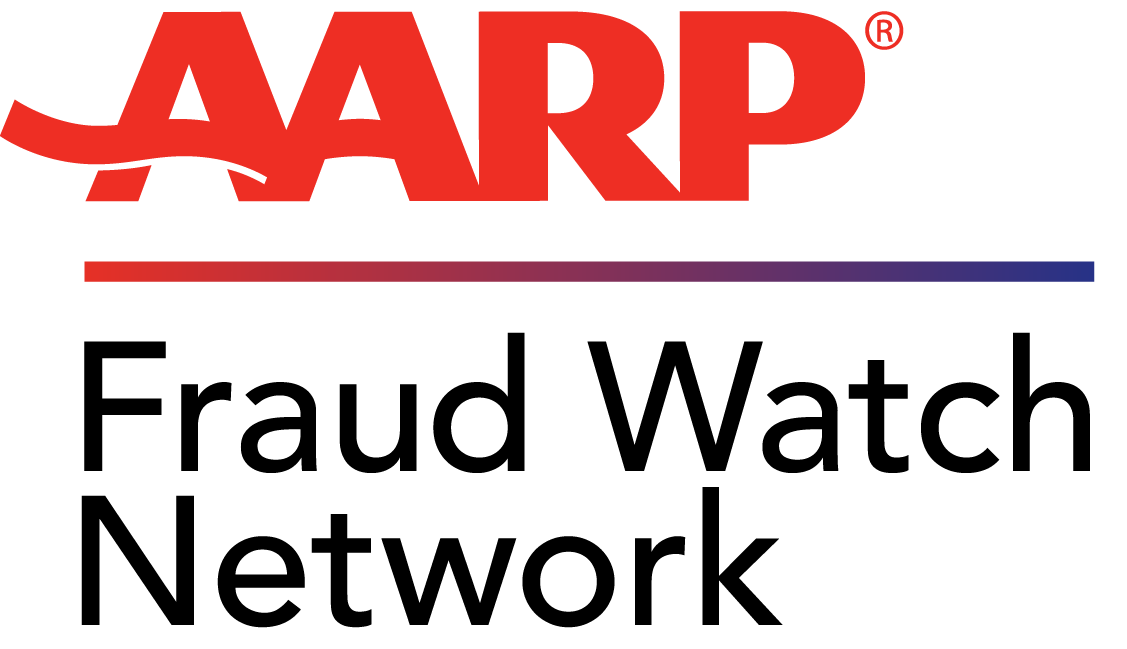AARP Hearing Center

Did you know that someone’s identity gets stolen every two seconds? The AARP Fraud Watch Network provides you with tips and resources to help you spot and avoid identity theft and fraud so you can protect yourself and your family. Our watchdog alerts will keep you up to date on con artists’ latest tricks. It’s free of charge for everyone: AARP members, non-members, and people of all ages. Be a fraud fighter! If you can spot a scam, you can stop a scam. Report scams to local law enforcement. Contact the AARP Fraud Watch Network at www.aarp.org/fraudwatchnetwork for more information on fraud prevention.
The AARP Fraud Watch Network is:
- An Educator: Get real-time alerts about the latest scams, tips on how to spot them, and the inside scoop on how con artists think so you can outsmart them before they strike.
- A Watchdog: Our nationwide scam tracking map gives you access to a network of people who've spotted scams and the opportunity to pass along your own experiences, so together we can beat con artists at their own game.
- A Resource: Get connected to a real live person trained in how to avoid fraud and advise you if you or a loved one has been scammed by calling our fraud hotline or attending a forum in your community.
- Free for Everyone: Anyone, of any age, can access our resources at no cost.

SCAM ALERT #1: Diet scams - COVID
Nearly half of US adults say they are trying to lose weight, and with many people worried about weight gain while stuck at home during the pandemic, that number may very well rise. Unfortunately, scammers know this and are trying to take advantage for their own financial gain. In fact, diet scams are the most common types of health care fraud reported to the Federal Trade Commission.
Be leery of websites that offer results that seem too good to be true, even if they include celebrity endorsements – which are often fake. When signing up for a free trial, read the terms and conditions closely. Often hidden in the fine print of even legitimate free trial offers is that your free trial becomes a paid subscription, and you’re on the hook for a monthly fee. Also, check with your health care provider before starting any new weight loss supplements.

SCAM ALERT #2: Lottery scams
One of the most resilient scams we know about is the lottery scam. In 2019 the Federal Trade Commission (FTC) received nearly 125,000 reports of scams involving prizes, sweepstakes and lotteries that cost victims $121 million.
When someone calls or mails (or e-mails or texts…) to congratulate you for winning a big lottery, engage your inner skeptic. Remember, you can’t win a lottery you’ve never entered. And, know that legitimate sweepstakes and lotteries will NEVER require you to pay an upfront fee.

SCAM ALERT #3: Social Security scams - COVID
Scammers are always looking to capture people’s personal information, and Social Security numbers are highly valuable. Because of that, scammers often impersonate the Social Security Administration. They may pose as a friendly Social Security official who just needs to confirm your information – including your Social Security number. Or, they use fear tactics to force the target’s hand out of fear their Social Security number will be suspended (something the Social Security Administration never does). They may even call with good news – you are eligible for a special cost of living adjustment; all you need to do is confirm your Social Security number.
Know this: the Social Security Administration will not call you out of the blue. You may get a legitimate call if you have an existing issue that you have been working on with the Social Security Administration. If you aren’t expecting a call, when “Social Security” calls, hang up.

SCAM ALERT #4: Elder financial abuse
When it comes to scams and fraud, we are often looking out for the unknown con artists. But most financial crimes against older adults are perpetrated by someone they know. Financial exploitation is the most common form of elder abuse in the US, and the average victim loses $120,000. We also know this crime is severely underreported.
Social isolation is a significant risk factor for financial abuse, and one of the best ways to combat it is maintaining regular contact with your older loved ones. Some telling signs of financial abuse include sudden changes in mood or behavior, or new financial issues like overdue bills or maxed out credit cards.
If you suspect your older loved one is suffering from financial exploitation, contact Adult Protective Services in your area for guidance and support. If you fear your loved one is in danger, call 911.
Be a fraud fighter! If you can spot a scam, you can stop a scam. Report scams to local law enforcement. For help from AARP, call 1-877-908-3360 or visit the AARP Fraud Watch Network at www.aarp.org/fraudwatchnetwork.































































